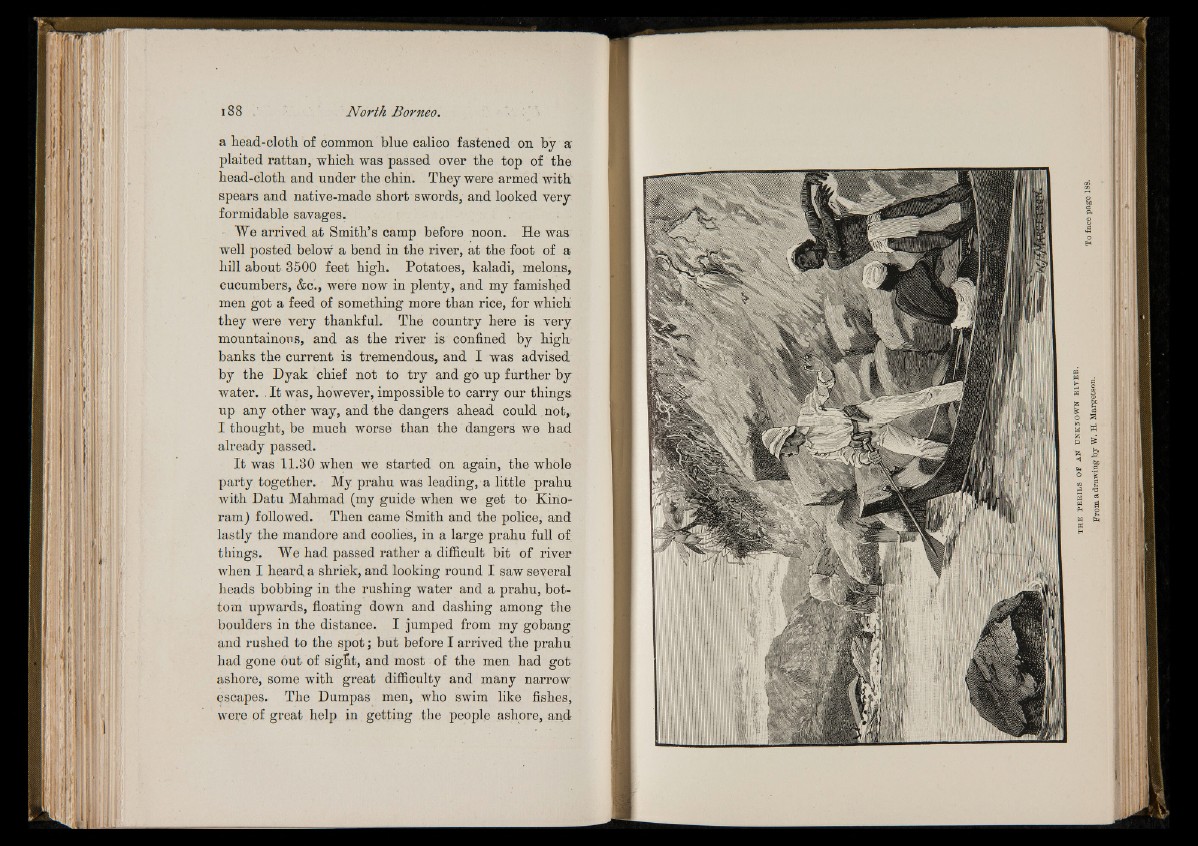
a head-clotli of common blue calico fastened on by a"
plaited rattan, which was passed over the top of the
head-cloth and under the chin. They were armed with
spears and native-made short swords, and looked very
formidable savages. ,
We arrived at Smith’s camp before noon. He was
well posted below a bend in the river, at the foot of a
hill about 3500 feet high. Potatoes, kaladi, melons,
cucumbers, &c., were now in plenty, and my famished
men got a feed of something more than rice, for which
they were very thankful. The country here is very
mountainous, and as the river is confined by high
banks the current is tremendous, and I was advised
by the Dyak chief not to try and go up further by
water. . I t was, however, impossible to carry our things
up any other way, and the dangers ahead could not,
I thought, be much worse than the dangers we had
already passed.
I t was 11.30 when we started on again, the whole
party together. My prahu was leading, a little prahu
with Datu Mahmad (my guide when we get to Kino-
ram) followed. Then came Smith and the police, and
lastly the mandore and coolies, in a large prahu full of
things. We had passed rather a difficult bit of river
when I heard a shriek, and looking round I saw several
heads bobbing in the rushing water and a prahu, bottom
upwards, floating down and dashing among the
boulders in the distance. I jumped from my gobang
and rushed to the spot; but before I arrived the prahu
had gone out of sight, and most of the men had got
ashore, some with great difficulty and many narrow
escapes. The Dumpas men, who swim like fishes,
were of great help in getting the people ashore, and